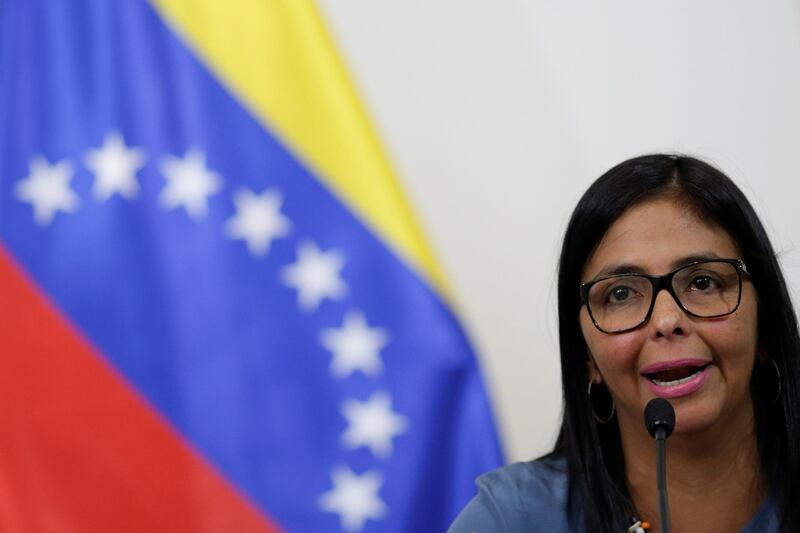Venezuelan authorities on Saturday began releasing some of those detained during demonstrations against president Nicolas Maduro's socialist government, a rare goodwill gesture to the opposition at the end of a politically torrid year.
Delcy Rodriguez, the president of the assembly and head of its Truth Commission investigating the protests, said that Christmas was "a moment of reconciliation" as she announced the decision to release about 80 people.
Among the first freed was Alfredo Ramos, mayor of the northwestern municipality of Iribarren, who was arrested in late July and handed a 15 month sentence, and a dozen police officers from Chacao municipality, an opposition stronghold in Caracas.
State television showed images of Ms Rodriguez meeting with the group.
"You go back to jail for the medical check and then you go home to spend Christmas with your families," she said.
"I feel happy for my freedom," Ramos said on his release. "It was a hard test, quite difficult."
But he also lashed out at his sentence.
"It was an arbitrary, unjust detention -- I committed no crime," he said.
_______________
Read more:
Christmas fear, not Christmas cheer in Venezuela
Venezuela to create a virtual currency backed by oil and gas reserves
Venezuelan opposition leader Lopez returned to house arrest, wife says
_______________
Venezuela, whose oil reserves once made it the region's richest country, has been paralysed in recent years by economic collapse and political conflict.
Opposition forces accuse Mr Maduro of dismantling democratic institutions and setting up the Constituent Assembly to rubber-stamp his policies, with widespread protests breaking out this year.
Supplies of food and medicine have become scarce, taking an ever-greater toll on people's health. Hundreds of thousands of Venezuelans have chosen to emigrate.
The fate of those imprisoned has been a subject of negotiations between the government and the opposition Democratic Unity Roundtable (MUD) in the Dominican Republic, as both sides seek a solution to the country's grave political and economic crisis.
A third round of talks is set for January 11 and 12.
This week, Venezuelan opposition leaders asked Mr Maduro to free "political prisoners" -- one non-governmental group estimates there are 268 of them -- before Christmas as a gesture of good will.
On Thursday, the regional trade bloc Mercosur also called for their release.
The government has insisted that all are being held for acts of violence, conspiracy or treason, not as political prisoners.
Ms Rodriguez said those affected were being held in civilian and military prisons, and she suggested community service as an alternative to imprisonment.
Some were detained in the 2014 protests, and others this year.






